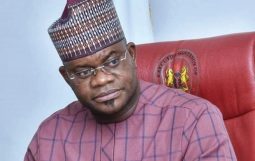The promoters of the new coalition like to draw parallels with what the APC achieved in 2013. But let’s be clear: this is not 2013—and this is not the APC.
In 2013, the merger that birthed the APC was driven by selflessness, national interest, and strategic discipline. The leaders at the time were willing to set aside personal ambitions for the greater good. Asiwaju Bola Ahmed Tinubu, despite commanding the loyalty of several sitting governors, chose to wait. He bided his time, played the long game, and focused on building a viable political platform. He had never lost an election, and he didn’t have to force his way in.
Now contrast that with today’s coalition. The chief promoter is a serial election loser, clutching at what he clearly sees as his last shot at the presidency. Unlike Tinubu, he enters the coalition alone—without the backing of his state governor, his region, or any meaningful political structure. His ambition is personal, not patriotic. So also that of his many co-travelers.
In 2013, the APC had a rallying figure in Muhammadu Buhari—a man seen as a symbol of integrity, and a national unifier with cult-like grassroots appeal. Today, no one in this coalition commands that kind of loyalty or trust. Not one of them could genuinely unite a ward, let alone a country. No one comes close to parading the democratic credentials of President Bola Tinubu.
Most importantly, the APC coalition emerged to address real grievances: the constitutional denial of power to a region that had been unfairly sidelined and to end the 16 years of ruinous governance by the PDP. It was a coalition grounded in justice and balance.
This new coalition? It’s purely opportunistic. The presidency already rests with the region rightfully due. And that’s where it will be till 2031.







